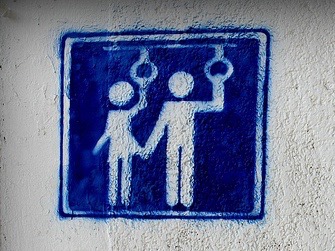Just the Facts, Please
By Caroline Taylor
It’s okay if you don’t recognize the make or model of the car that hit you. It’s okay if you can’t be sure it was gray or silver, and no one expects you to recall the license plate details. After all, they came out of nowhere. Your car is totaled, and you have a broken arm. Of course, you didn’t notice anything about the person driving the car that hit you. You were a victim, and the perpetrator will be brought to justice with very little concern for the damage it might do to their reputation.
You’ll be understood if you can’t be sure the mugger or school shooter had a shotgun or an automatic rifle or had blue eyes or brown or if their hoodie was navy or black or if they were young or old. You’re just lucky to be a survivor. Everyone gets that. And hardly anyone cares what pain or humiliation the ensuing publicity might cause the perpetrator, provided they survived.
But if you’re the victim of a sexual assault, you don’t have a chance in hell of being believed unless you can recall exactly when it happened (to the second, if possible) and where it happened (address, room number, zip code), including if you were raped on the floor of the living room, in a bedroom (which bedroom?), or elsewhere like, for example, an office or a bar or a deserted warehouse (what were you doing there?). If the attack happened outside, you must recall whether it was in a park, in a car, or in an alley (what were you doing there?). If you were assaulted in a rural area, it is paramount that you remember the exact phase of the moon, whether it was cloudy or rainy or snowy, and whether any animals you observed or heard were cattle, sheep, horses, wolves, or coyotes. No one will sympathize if you cannot describe the biota—corn field, wheat field, tree farm, pasture, woods, desert—and, if woods, whether the trees were conifers or deciduous or a mix, or, if desert, whether the cacti were epiphytic or globular or a mix.
Unless you were blindfolded, you will be expected to recall the full name and physical description of the perpetrator, as well as any potential witnesses and whether they (or you) were inebriated. If your inebriation incapacitated you because it was a roofie, you will be accused of poor judgment. You will be required to describe the clothes you were wearing. You must recall what the perpetrator and any witnesses said, and when they said it. You will need to provide their addresses, both physical and online, and phone numbers.
If you cannot recall these details or failed to videotape the attack, you will be suspected of having a faulty memory or making a false report for ulterior motives. (Of course, if you did happen to record the attack, that fact could also be used to suggest the assault was a setup.)
Not everyone understands that you are a victim of a sexual assault. Many people persist in believing you must have asked for it. Sometimes, especially when the stakes are high, you could remember every detail and have all the facts and contact details for more than one credible, corroborating witness, and still be blamed for your role in sullying the reputation of the person who attacked you. Women, and more recently young Catholics of either sex, know that this double standard applies today, as it has for millennia. Unfortunately, those with an outsized sense of entitlement and their own ulterior motives know this, too.
Caroline Taylor is the author of five mysteries and one short story collection. Visit her at www.carolinestories.com.
Image by pixel2013 from Pixabay.




